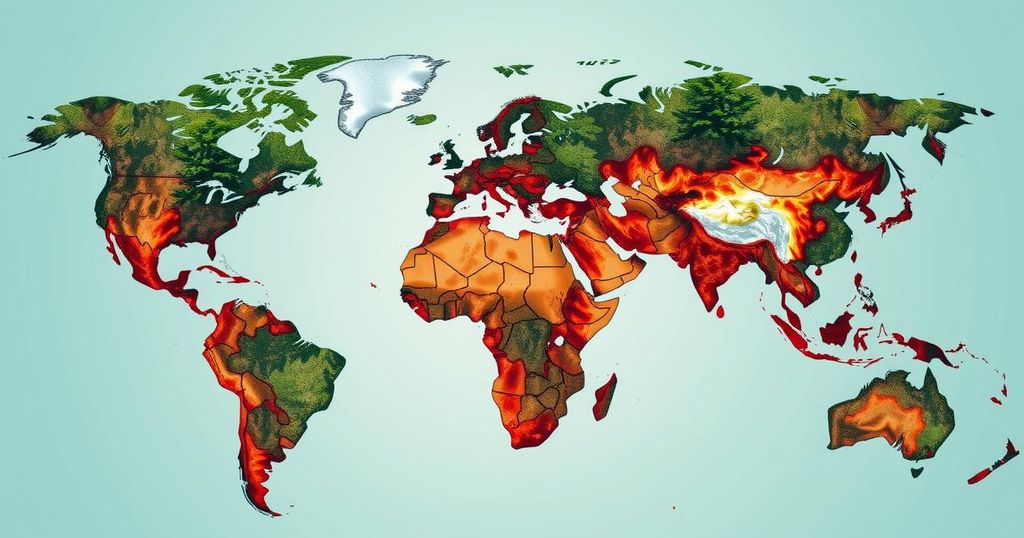In 2024, the global temperature reached a record high of 15.10 degrees Celsius, 1.6 degrees above pre-industrial levels. This increase has led to severe natural disasters and intensified climate crises worldwide. While temporarily exceeding the Paris Agreement’s 1.5 degrees Celsius threshold is concerning, it highlights the need for immediate global action to reduce emissions and enhance climate financing for developing nations. The COP29 summit revealed significant gaps in financial commitments necessary to combat these challenges.
The year 2024 has been recorded as the hottest in history, with the global average temperature surpassing 1.5 degrees Celsius above pre-industrial levels, as reported by the Copernicus Climate Change Service. The recorded average temperature reached 15.10 degrees Celsius, marking a significant increase of 1.6 degrees Celsius since the pre-industrial era (1850-1900). The alarming rise in temperatures has been linked to a series of natural disasters, including wildfires in Los Angeles, Cyclone Chido, Cyclone Dikeledi, and extensive flooding in Central Europe.
Although exceeding the 1.5 degrees Celsius threshold within a single year raises concerns, it does not automatically signify a breach of the Paris Agreement, which was designed to account for such fluctuations over decades. The primary objective of this agreement is to limit global warming to between 1.5 and 2 degrees Celsius, indicating that immediate global action is essential to prevent further escalation.
The notable increase in global temperatures illustrates the imperative need for both individuals and governments to engage in proactive measures. This includes reducing reliance on fossil fuels, enhancing reforestation efforts, and safeguarding biodiversity to maintain ecological stability. At the recent United Nations Climate Change Conference (COP29) held in November 2024 in Baku, Azerbaijan, nations gathered to strategize on climate solutions. However, the conference concluded with wealthier nations agreeing to provide significantly less climate financing—$300 billion by 2035—for developing countries, despite a request of $1.3 trillion.
While the establishment of these new financial targets and the advocacy for sustainable practices can serve as catalysts for achieving net-zero emissions, without genuine and actionable climate strategies, such initiatives may ultimately prove ineffective or remain unfulfilled. Therefore, urgent global cooperation and tangible actions are crucial in addressing the pressing climate crisis, especially following the unprecedented warming observed this year.
The accelerating impacts of climate change have led to widespread concern among scientists and policymakers, highlighted by the record-breaking temperatures of 2024. The Copernicus Climate Change Service provides crucial data on global temperatures and climate trends, aiding nations in understanding the implications of climate variability. The Paris Agreement aims to limit global warming and outline a framework for international cooperation to address these environmental challenges, making it a pivotal element in the fight against climate change. As nations convene at various climate conferences, the outcomes reveal both progress and significant gaps in commitments, particularly with respect to climate financing needed for developing countries to adapt and mitigate climate impacts.
The year 2024 stands as a stark reminder of the urgency required to address climate change, with unprecedented temperature rise and its accompanying natural disasters. While the Paris Agreement allows for temporary breaches of the 1.5 degrees Celsius threshold, the pressing need for swift action from both individuals and governments cannot be overstated. Concrete steps must be taken to reduce fossil fuel dependency and to invest in sustainable practices, ultimately ensuring that climate financing commitments translate into meaningful actions. Continued collaboration and accountability will be critical in navigating the path toward a stable and sustainable climate future.
Original Source: www.outlookbusiness.com






